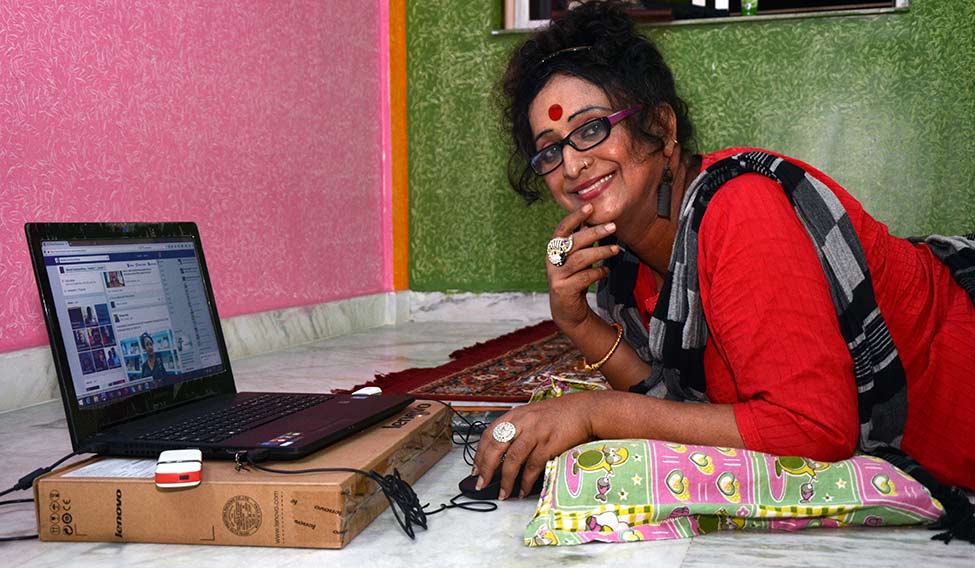These days, Manabi Bandyopadhya does not mind if someone taunts her for being a transgender. About 14 years ago, she chose to become a woman. Today she is head of a government-run college, something Bengali society finds hard to accept.
Ever since she was made principal two years ago, Manabi has been subject to insult, defamation and a barrage of allegations. “Even Swami Vivekananda had to face insults when he ventured to set up Belur Math,” said Manabi, 54. “He went from door to door and begged. A courageous, handsome, educated man was seeking help from the people. How could society accept that? When such a personality was insulted and vilified, who am I?”
Born Somnath to a middle-class family in Naihati, a suburb outside Kolkata, Manabi underwent sex change in 2003 when she was a lecturer at Jhargram Raj College. She was forced to vacate the college hostel when teachers asked her to behave like a man.
“But, I am a woman, how could I become a man? Yes, I was born a man but my soul was something else. I faced tremendous humiliation and insults from my colleagues. I gathered money to go for sex change operation,” she said.
With a change of sex, she changed her name. Somnath became Manabi, which means 'humane' in Bengali. All she wanted was to be treated with compassion, and for people to understand and accept her.
Manabi did her PhD in Bengali literature. Though she changed her name, the left government in power refused to accept her new identity. “That government followed the rulebook and listened to the oppressors,” she said.
It was Chief Minister Mamata Banerjee who accepted her application of recording her new name and gender. In Manabi's words, “Perhaps a woman who struggled in life could understand my struggle.”
The challenge after her makeover was tougher. She was unsure whether it was an identity crisis. But, despite the new government allowing her an equal place in society, most people were against it. “But, I remained steadfast, refusing to budge. The result was more confrontation,” said Manabi.
Joining as principal of the government women’s college in Krishnanagar, West Bengal, in 2015, Manabi found teachers were not regular to class. “I tried to alter things and check corruption. Then I came to know what a backlash really means,” she said. The teachers lodged a complaint against her in 2016. More than administrative, the allegations were personal. “They tried to blacken the sacred relationship between me and my adopted son,” she said.
In 2016, hundreds of women queued up outside the college to agitate against her disciplinary actions. “On seeing so many people against me, I decided to resign,” said Manabi.
A few days after her resignation, the education minister of West Bengal, Partha Chatterjee, requested her to return to the post. “That I am still in my chair means that the allegations against me are all false,” said Manabi.
Today, Manabi is vice chairman of the West Bengal government's transgender board, which she calls a paper tiger. After all, can a board change things when so many people are against people like her?
“I am a different person today, but what about others who don’t have a voice?” For Manabi, it is not individual corruption, but a massive campaign that refuses to let people like her grow. “And, being an individual, how can I fight alone?” she asks. “But, I am unfazed. I am still at war.”






